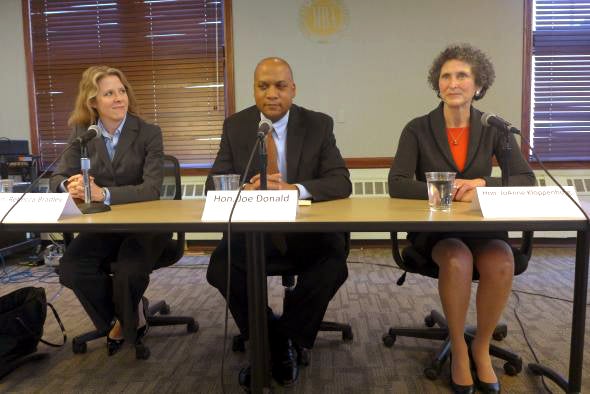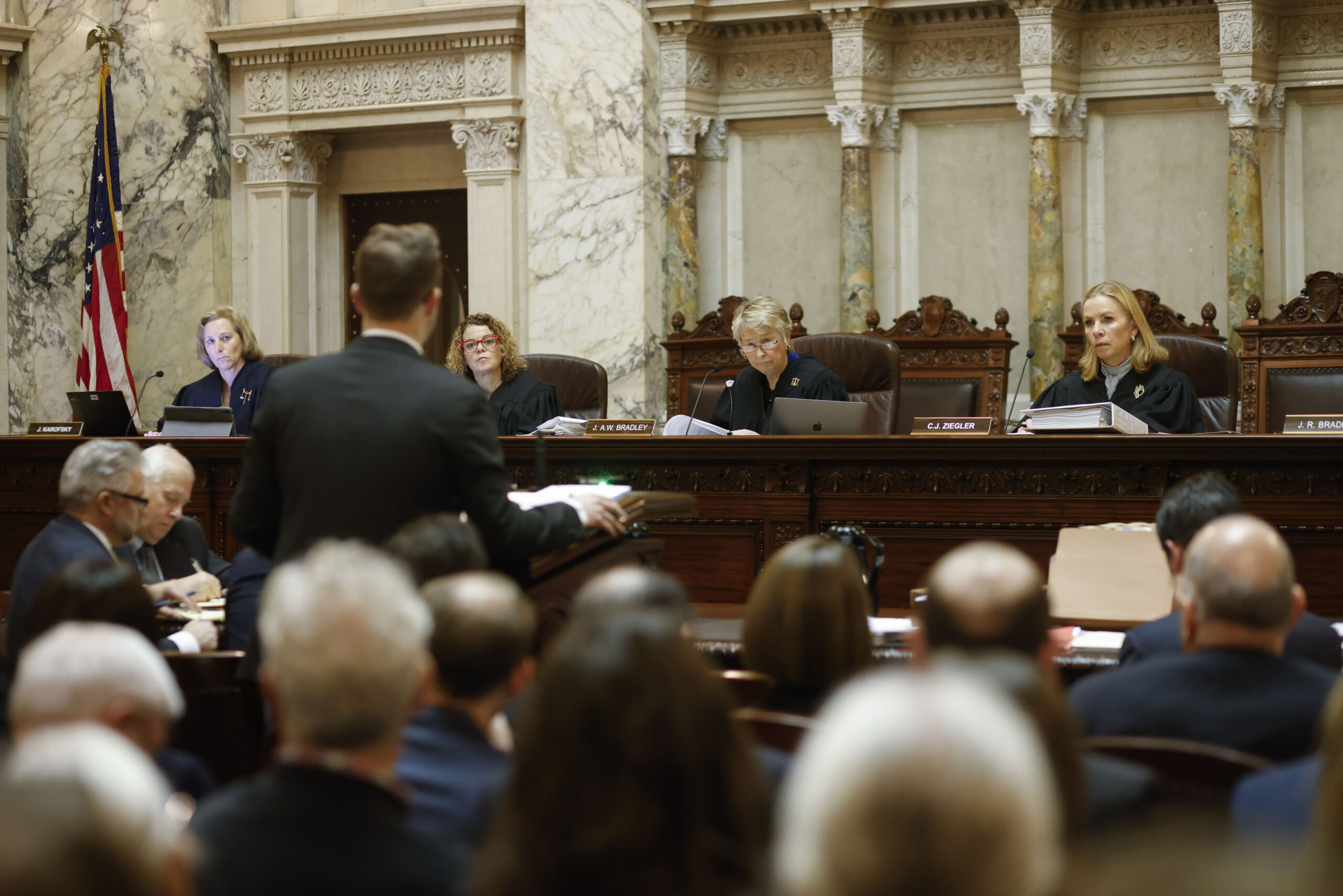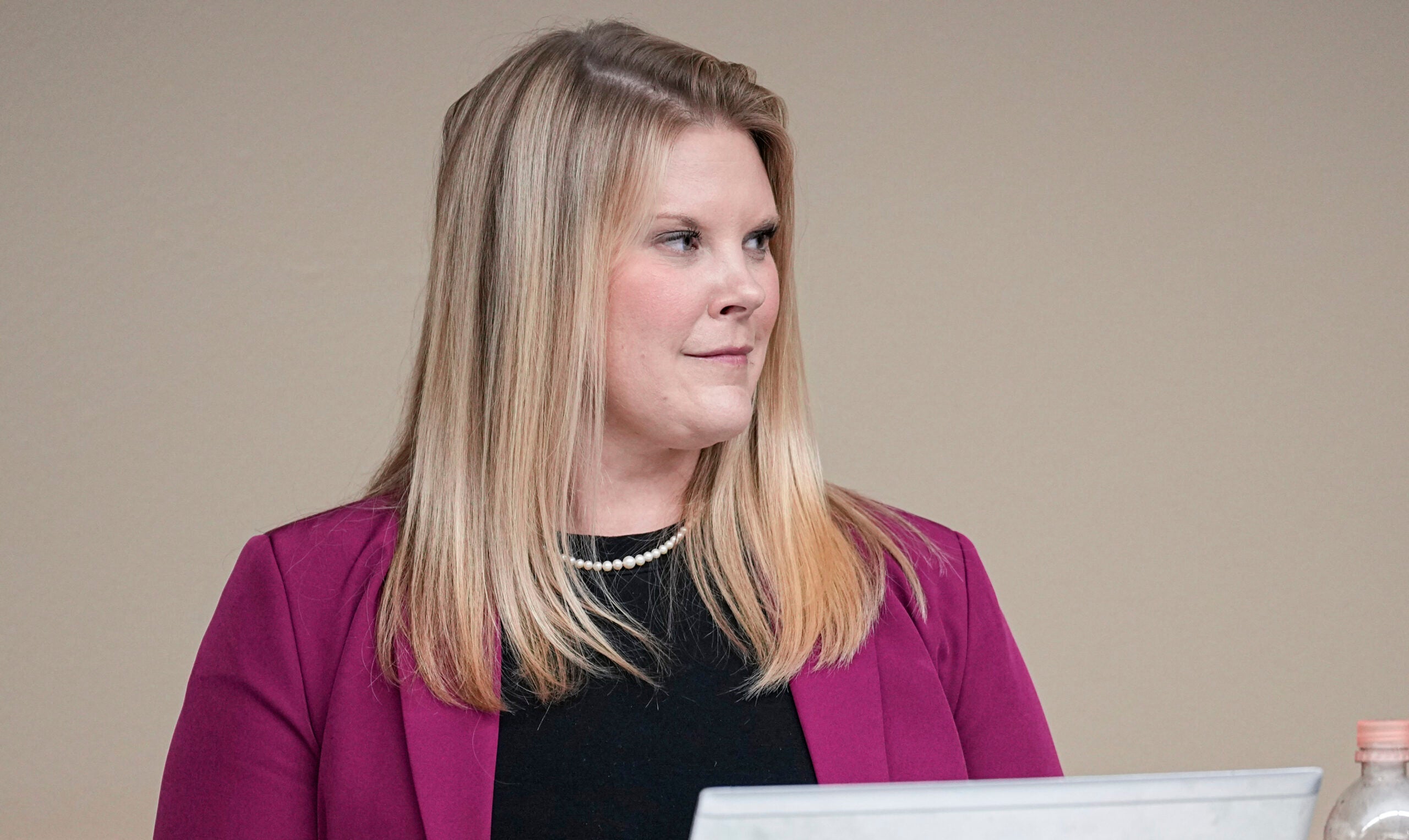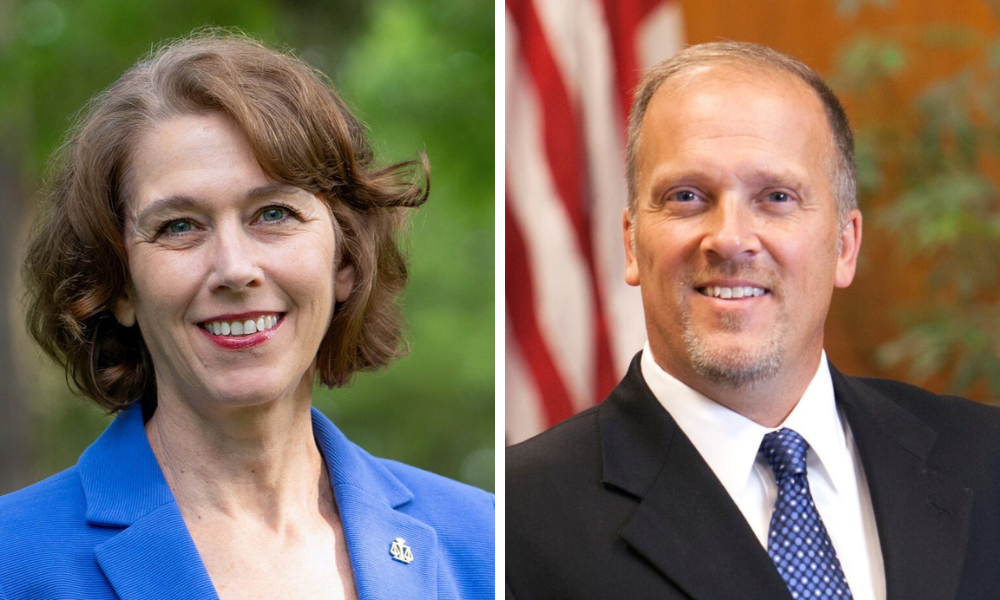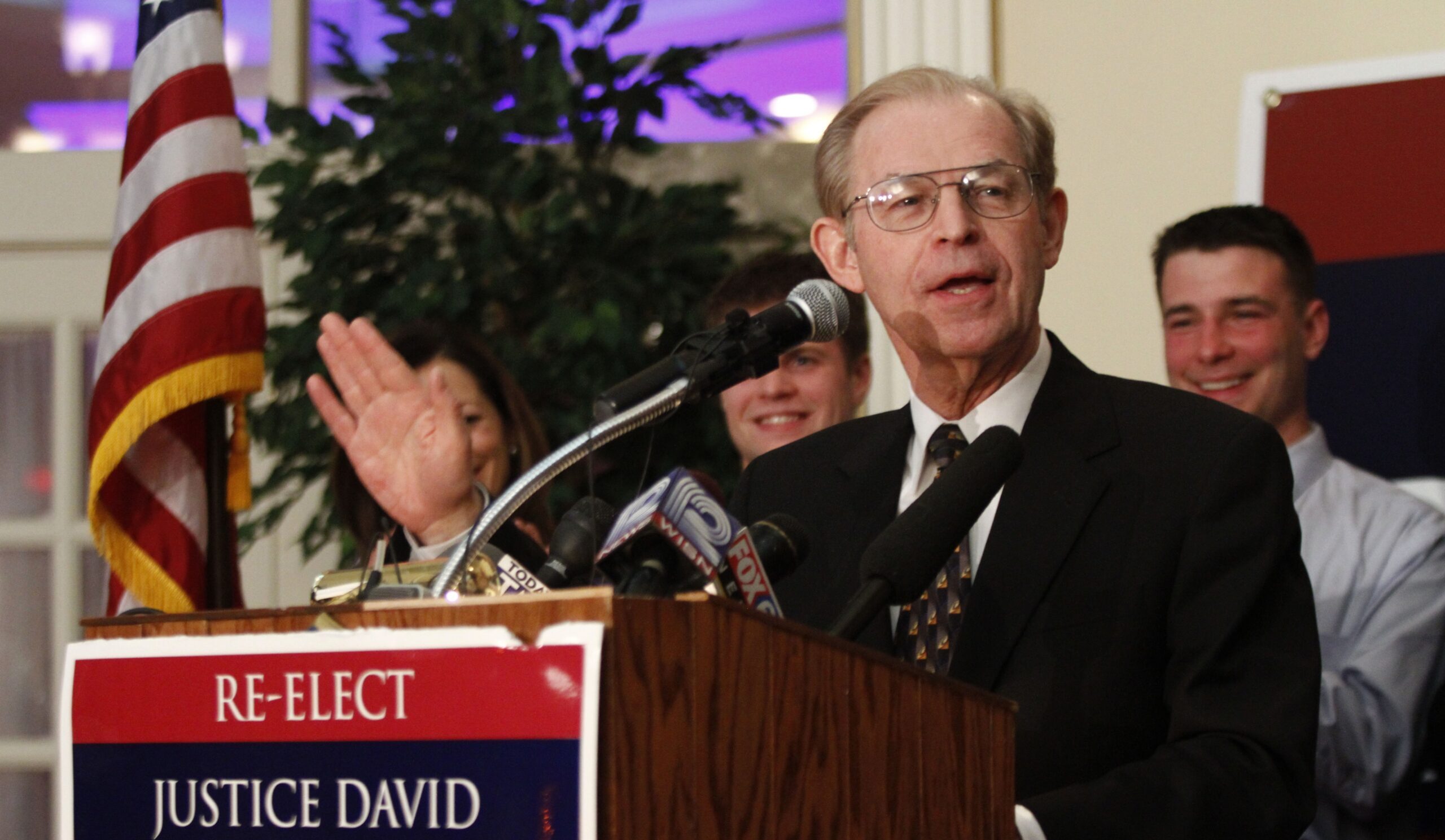In a debate in Milwaukee on Wednesday, two of the three candidates for state Supreme Court said the current court is politically divided and both promised to work to change that.
Political squabbling on the state’s high court gained national attention in June 2011 when Justice David Prosser was accused of grabbing Justice Anne Walsh Bradley around the neck during argument over when to release a ruling that stripped state workers of their union bargaining rights. Last year, the justices had bitter arguments about a constitutional amendment that changed the process for deciding who would be the chief justice.
This year’s race pits incumbent Justice Rebecca Bradley against appeals court Judge JoAnne Kloppenburg and Milwaukee County Circuit Court Judge Joe Donald.
Stay informed on the latest news
Sign up for WPR’s email newsletter.
Donald was appointed to his current judgeship by Gov. Tommy Thompson in 1996 and has handled more than 10,000 cases over the past two decades. He said the current court is crippled by political infighting.
“Politics has infiltrated our state Supreme Court to the degree that the justices in my opinion may not even be talking to each other,” he said.
Donald said his experience as an African-American growing up in an all-white Milwaukee neighborhood makes him the right candidate to resolve the current disputes on the court.
“I have overcome economic differences, racial differences, cultural differences,” said Donald. “I am bringing that skill to our state Supreme Court because it is vitally needed.”
But Rebeccca Bradley said in the three months that she has been on the court, she has seen no evidence of infighting. She was appointed to the court in October by Gov. Scott Walker to fill the seat of Justice Patrick Crooks after his death the month before. Bradley served as circuit court judge for two and half years and as an appeals court judge for five months before being appointed to the Supreme Court.
“I am very pleased to report to everyone that those conversations that occur among my colleagues on the court are always very collegial and professional, and as a member of the state Supreme Court, I can tell you that I always respect the opinions of my colleagues even when I disagree with them,” Bradley said.
But Kloppenburg said the problem isn’t how the justices interact — it’s the public perception that they are influenced by the partisan political groups that funded their election campaigns.
Kloppenburg lost a tight race for a seat on the court in 2011. She was outspent 2 to 1 by her incumbent opponent Justice David Prosser in a race that included $3.5 million in spending by outside groups.
“With the massive amounts of expenditures from entities that don’t have to disclose their donors comes the perception that justice is for sale,” Kloppenburg said. “I am the only candidate with the background and the backbone that the voters can count on to stand up for the people of Wisconsin and against special interests and partisan politics.”
Kloppenburg was a prosecutor in the state Department of Justice for 22 years. After her loss to Prosser, she was elected to the appeals court in 2012.
Although all three candidates promise not to let politics cloud their interpretations of the law, they all have endorsements from politicians on one side of the aisle or the other. Kloppenburg has received endorsements from several Democrats in the state Assembly and from former Democratic Congressman Dave Obey. Donald has been endorsed by former Democratic U.S. Sen. Herb Kohl, as well as a long list of judges from Milwaukee. Bradley has received strong backing from Wisconsin Manufacturers & Commerce and is endorsed by more than a dozen Republican district attorneys.
The three justices each have a different judicial philosophy. Bradley, for example, said she has a restrained approach to interpreting state law and always looks carefully at the precedents set by previous court rulings.
“The people of Wisconsin have the right to rely on the law that has developed and not have sharp diversions and changes just because membership on the Court has changed,” Bradley said.
Kloppenburg said her rulings are based on where the facts and the law take her, and “answer the question that is asked by the parties in a focused and disciplined way.”
Donald said he tries to keep an open mind about whether the law is being applied fairly in his rulings.
“There are times when there is a law that, when it is applied, is applied unfairly and it weighs heavily on particular group of individuals,” Donald said.
Voters will trim this field of three candidates down to two in a primary on Feb. 16. The winners will face off in a general election in April.
Wisconsin Public Radio, © Copyright 2025, Board of Regents of the University of Wisconsin System and Wisconsin Educational Communications Board.
